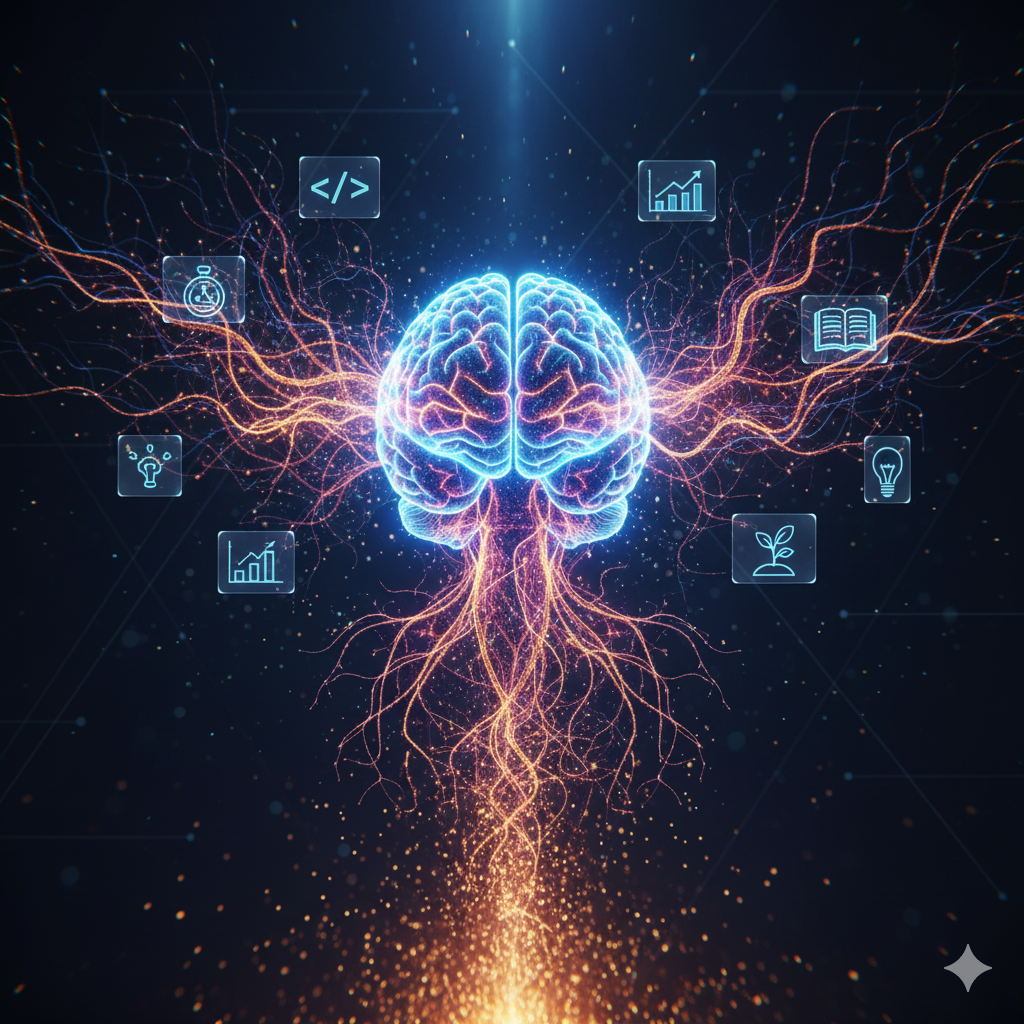Learn How to Learn: The Method for Learning Any Skill or Subject Quickly
The Most Valuable Skill You Can Ever Learn
If you could master one skill that made every other skill easier to learn — what would it be?
It’s not coding, design, or data science. It’s the ability to learn how to learn.
In an age where knowledge doubles every few years, your ability to learn faster than the world changes is the ultimate competitive advantage. Whether you want to switch careers, start a business, or simply grow personally, understanding how to learn effectively turns the impossible into the achievable.
1. Learning Isn’t About Memory — It’s About Connection
Traditional education trains us to memorize facts, but real learning is about building connections.
Every new idea sticks only when your brain can link it to something you already know. The key to rapid learning isn’t forcing repetition — it’s finding relationships between concepts.
When you learn something new, ask:
- “How does this connect to what I already know?”
- “What real-world problem does this solve?”
- “Where could I use this tomorrow?”
Each connection strengthens memory, understanding, and confidence — turning short-term knowledge into long-term mastery.
2. Use the Feynman Technique: Learn by Teaching
Physicist Richard Feynman once said, “If you can’t explain it simply, you don’t understand it well enough.”
Here’s how to apply that insight:
- Choose a concept you’re learning.
- Explain it out loud as if teaching a beginner.
- Identify where you struggle — those are your learning gaps.
- Go back to the source material and clarify.
- Simplify your explanation until it’s effortless.
This process forces active recall, deepens understanding, and makes complex topics feel simple.
3. Learn in Loops, Not Lines
Most people try to learn linearly — read a book from start to finish, watch a course straight through, and hope it sticks. But the brain learns best in loops.
A loop looks like this:
- Preview: Skim the material to get an overview.
- Engage: Dive into one concept and apply it.
- Reflect: Summarize what you just learned in your own words.
- Revisit: Return later and refine your understanding.
Each loop deepens your mastery. You’ll find you retain more, understand faster, and avoid burnout.
4. Apply the 80/20 Rule to Everything You Learn
Not all information is created equal. In any subject, 20% of concepts drive 80% of results.
If you’re learning data science, it’s not about mastering every library — it’s understanding how to ask the right question of your data.
If you’re learning a language, it’s not memorizing every word — it’s mastering the 500 most common ones.
If you’re learning business, it’s not every marketing tactic — it’s knowing how to communicate value clearly.
Ask yourself: “What’s the essential 20% that makes everything else easier?”
Then focus relentlessly on that.
5. Space It Out — Don’t Cram It In
Your brain doesn’t learn through force. It learns through spacing.
Instead of marathon sessions, use short, focused bursts with breaks in between. This technique — known as spaced repetition — helps your brain move information from short-term to long-term memory efficiently.
The rule of thumb:
- Study for 25–45 minutes.
- Take a 5–10 minute break.
- Review again after one day, one week, and one month.
Learning compounds over time — just like investing.
6. Make Learning Active, Not Passive
Watching videos or reading passively can make you feel productive, but it doesn’t lead to mastery.
To really learn, you must do:
- Take notes by hand to engage your memory.
- Create your own examples.
- Build small projects or teach others.
- Test yourself before you think you’re ready.
Active learning creates feedback — and feedback creates growth.
7. Build a Learning System, Not a Goal
Goals are outcomes. Systems are habits.
Instead of saying, “I want to learn Python,” say, “I’ll code for 30 minutes every morning.”
Instead of saying, “I want to read 12 books this year,” say, “I’ll read 10 pages after dinner.”
When learning becomes part of your daily system, it compounds quietly and powerfully. Small consistent actions lead to exponential growth.
The Bottom Line
Learning how to learn is the foundation of lifelong adaptability. It makes every skill easier to acquire, every project more manageable, and every challenge more exciting.
When you know how to learn, you can reinvent yourself anytime.
So before you start your next course, certification, or degree — master this one skill first. Because the person who learns fastest wins.

